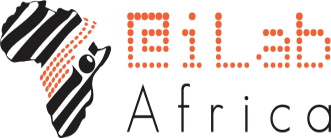Wildlife
Digital Platform To Aid In Disposing Plastic Waste

Environmental pollution is one of the most serious global challenges facing humanity today and the leading causes of medical conditions and mortality. Human activities through urbanization, industrialization, mining, and exploration are at the forefront of global environmental pollution. Both developed and developing nations share this burden, though awareness and stricter laws in developed countries have contributed to a larger extent in protecting their environment. Despite the global attention towards pollution, the impacts are still being felt due to its severe long-term consequences.
Africa is blessed with natural and mineral resources, exploitation of these resources has led to extreme pollution of the environment in many of the countries, population growth and urbanization due to developments have also contributed immensely to the current pollution in Africa.
In recent decades, poor plastic products disposal has led to the accumulation of plastic waste in the environment, majorly polythene bags, plastic bottles among other plastic products, leading to a rising state of plastic pollution. Plastics can be categorized in primary plastics, such as cigarette butts and bottle caps, or secondary plastics, resulting from the degradation of the primary ones.
According to the United Nations (UN, 2019), more than eight million tons of plastic waste end up in the oceans annually, leading to negative effects on marine wildlife, fisheries, and tourism. This pollution comes mainly from household waste, which is poorly recycled, dumped in landfills, or abandoned in nature, the waste is carried by the winds, pushed by the rains into sewers, streams, rivers, and finally in the oceans. Natural disasters such as floods can be considered as other causes of plastic pollution as well.
United Nations Environmental Programme (UNEP) Nairobi in collaboration with @iLabAfrica Research and Innovation Centre of Strathmore University has come up with a digital platform to aid in the education and sensitization of people on the effects of environmental pollution while also highlighting the best ways of waste disposal.
Through the project, the Digital Learning Unit at @iLabAfrica has developed a mobile application that offers the general public animations detailing the simple acts of improper waste disposal and how far they go towards affecting humans, wildlife, and marine life, creating a public health concern because diseases become more common.
Victor Malombe, Digital Learning Assistant at @iLabAfrica says that the platform is available for both android and apple phones and seeks to fill a knowledge gap while also supporting the ban on plastic bags in the country. “The UNEP project application is basically in support of plastic ban in the country by creating relevant content that showcases dangers posed by plastic products to the environment. Some
of the animations detail how a locally dumped plastic ends up in the ocean, affecting fish which are later consumed by people thus endangering their health and well-being” says Mr. Malombe.
Data from UNEP indicates that environmental pollution has been on a steady increase in many African countries, demonstrating the need for efficient and sustainable solutions to help control the situation. One solution is the development and mobilization of technologies that either offer education to the masses or provide alternatives to plastics as demonstrated by the collaboration between @iLabAfrica and UNEP.
With the rise in mobile penetration across Africa, mobile applications and emerging technologies will be powerful tools in the dissemination of content, messages aimed at educating the masses on various environmental issues which are negatively affecting human life and other important ecosystems.
Plastic waste pollution, aggravated by inefficient waste collection and limited recycling capabilities, has been prevalent across Africa. However, the continent has a growing, youthful population that values improving the quality of life and readily adopts technologies aimed at controlling this menace.
This makes Africa suitable as a testing ground to investigate the effectiveness of new technologies for solving environmental challenges. In addition to consumers pushing brands to be more environmentally responsible, a business case also exists in Africa that enables brands to invest in technologies that promote a circular economy. As such, a trend for plastic waste remediation efforts in Africa that relies principally on consumer engagement to create a plastics circular economy has emerged.
A healthy environment plays a key role in realizing many of the Sustainable Development Goals, with less than 10 years left to 2030, the world needs to pick up the pace and put greater efforts into finding better solutions to pollution and climate change to truly transform societies and economies.
To know more about this project visit www.ilabafrica.ac.ke

